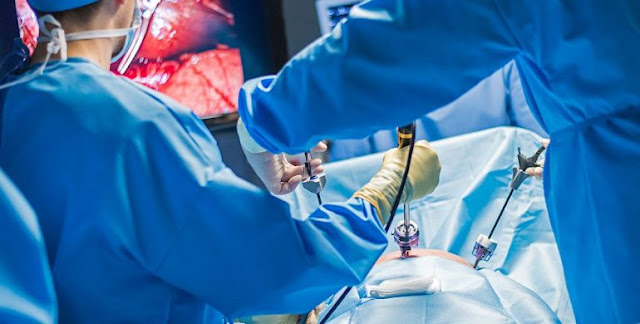Some Uncommon Symptoms of Hernia That You don't Know About
A hernia is very uncomfortable
and a painful condition. It occurs when an internal body organ pushes
itself into an opening in the muscle or tissue that holds it in
place. The occurrence of hernia indicates weakness in the muscles,
which may occur due to hereditary reasons, or procured due to the
absence of adequate physical activity or after undergoing any major
surgery.
What are the most common types
of hernias?
Inguinal hernia: This
type of hernia occurs when the intestine or the bladder projects
through the abdominal wall or into the groin area. It is the most
common type of hernia and occurs mostly in males.
Femoral hernia:
This hernia tends to develop when the intestine invades the canal
carrying the femoral artery into the upper thigh area. This type of
hernia is common in obese and pregnant females.
Incisional hernia:
This is also known as a ventral hernia. It appears when the intestine
propels into the abdominal area at the same site of previous
abdominal surgery.
Umbilical hernia:
This type of hernia occurs when the small intestines move into the
abdominal wall near the navel. It is common mostly in newborns and
pregnant women.
Hiatal hernia:
This type of hernia appears when the top portion of the belly
compresses and passes through the hiatus (an opening in the diaphragm
through which the esophagus passes).
It is essential to detect the
symptoms of a hernia and act on it. The symptoms often give
indications only on the surface level, and one must consult Best Hernia Doctor in Delhi and
Gurgaon to determine the causative agent. If someone spots any
noticeable bulge in the body, it might be a hernia. One probably
won’t even suspect hernia unless one or more of the causative
indications have popped up. As more and more symptoms arise, the
likelihood of having hernia increases.
Read on to know about the
lesser-known symptoms of hernia:
1. Constipation and bowel
obstruction:
The most dangerous aspect of
hernia is that it can negatively influence the ability to defecate
and even to urinate. This becomes even worse if intestines become a
part of hernia. In some of the cases, constipation is the outcome. If
the condition worsens, it can lead to bowel obstruction which, if not
diagnosed and managed promptly, can be life-threatening. If a
division of the intestines bursts into the abdominal wall, then
hernia is mostly like to develop.
2. Lifestyle pattern:
Poor diet, obesity, tobacco
intake, alcohol consumption, cystic fibrosis, intestinal fluid, not
able to pass urine due to an enlarged prostate, recurrent kidney
diseases, and a sedentary lifestyle, all this contribute to weakened
muscles which can in-turn cause a hernia.
3. Respiratory complications:
Most people will not affiliate
respiratory concerns with hernias, but this isn’t the real case.
Hiatal hernias and chronic or acute respiratory distress are
correlated. This happens when a person encounters acid reflux. Reflux
is the abnormal response of the body, in which the stomach acid
passes back into the throat. Hoarseness, intense coughing, and even
pneumonia can be the outcome of the condition. All this can trigger
heart attacks, hernia, sleep apnea, and some other serious
complication.
To know more about hernia, its
types and causing factors, visit www.obesitysurgeonindia.com, or
consult the Best Bariatric Surgeon in Gurgaon Dr.
Vikas Singhal.
For any queries mail at
drvikas@obesitysurgeonindia.com
contact +91 8826233885
Clinic Address: Sector 38, Medanta Medicity,, Gurugram, Haryana 122018


Thanks for your great information, the contents are quiet interesting.Gynecologist in Bangalore | Infertility Treatment in Rajajinagagr | Top Uterus Removal Surgery in Bangalore
ReplyDeletevery informative article you are providing us.kindly check my blog as well Bariatric Surgery In Islamabad, Rawalpindi, And Pakistan
ReplyDelete